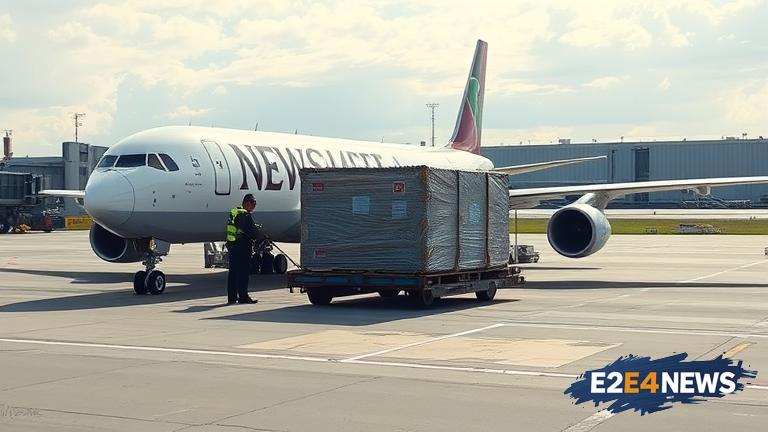A drug importer was recently apprehended at Newcastle Airport, sparking a wider investigation into the smuggling of illicit substances into the UK. The individual, who has not been named, was found to be in possession of a significant quantity of drugs, which were believed to have been imported from overseas. The incident has raised concerns about the ease with which illicit drugs can be smuggled into the country, and the need for increased security measures at airports and other points of entry. Law enforcement agencies are working to identify the source of the drugs and to disrupt the supply chain, but the incident highlights the ongoing challenge of combating drug trafficking. The UK has seen a significant increase in drug-related crime in recent years, with many cases involving the importation of illicit substances from abroad. The use of airports and other transportation hubs to smuggle drugs into the country is a particular concern, as it allows traffickers to bring large quantities of drugs into the UK quickly and easily. The incident at Newcastle Airport is just one example of the many cases of drug smuggling that have been reported in recent years. In many cases, the drugs are hidden in luggage or cargo, making them difficult to detect. However, law enforcement agencies are using a range of techniques, including sniffer dogs and scanning technology, to identify and intercept illicit substances. The penalties for drug trafficking are severe, with those found guilty facing lengthy prison sentences and significant fines. Despite this, many individuals continue to be drawn into the lucrative trade, often motivated by the promise of large profits. The impact of drug trafficking on communities is significant, with many areas experiencing high levels of crime and social problems as a result of the trade. The incident at Newcastle Airport has sparked calls for increased action to be taken to combat drug trafficking, including greater investment in law enforcement and border security. The UK government has pledged to take a tough stance on drug trafficking, with a range of measures aimed at disrupting the supply chain and reducing demand. However, the challenge of combating drug trafficking is complex, and will require a sustained effort from law enforcement agencies, governments, and communities. The use of technology, including data analytics and artificial intelligence, is seen as a key part of the solution, allowing law enforcement agencies to identify and track traffickers more effectively. International cooperation is also critical, with many cases of drug trafficking involving multiple countries. The incident at Newcastle Airport has highlighted the need for greater cooperation between law enforcement agencies, both within the UK and internationally. By working together, agencies can share intelligence and best practices, and develop more effective strategies for combating drug trafficking. The public also has a role to play, with many cases of drug trafficking relying on individuals being willing to transport or store illicit substances. By reporting suspicious activity and providing information to law enforcement agencies, individuals can help to disrupt the supply chain and reduce the availability of illicit drugs. The incident at Newcastle Airport is a reminder of the ongoing challenge of combating drug trafficking, but also of the importance of continued efforts to disrupt the supply chain and reduce demand. With the right combination of technology, international cooperation, and community engagement, it is possible to make a significant impact on the trade, and to reduce the harm caused by illicit drugs.
